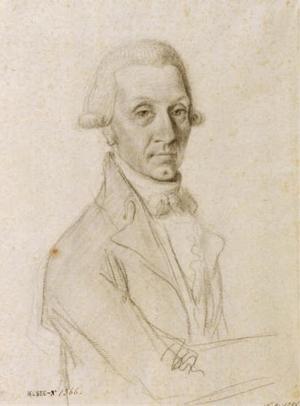Luís Pinto de Sousa Coutinho, 1st Viscount of Balsemão facts for kids
Quick facts for kids
His Lordship
The Viscount of Balsemão
GCA
|
|
|---|---|
 |
|
| Secretary of State for the Internal Affairs of the Kingdom |
|
| In office 6 January 1801 – 14 April 1804 |
|
| Monarch | Prince Regent John |
| Preceded by | José de Seabra da Silva |
| Succeeded by | The Count of Vila Verde |
| Secretary of State for Foreign Affairs and War |
|
| In office 15 December 1788 – 6 January 1801 |
|
| Monarch | Maria I of Portugal |
| Preceded by | Viscount Vila Nova de Cerveira |
| Succeeded by | Rodrigo de Sousa Coutinho (as Secretary of Foreign Affairs) António de Araújo e Azevedo (as Secretary of War) |
| Portuguese Minister to Great Britain | |
| In office 8 July 1774 – 5 September 1788 |
|
| Monarch | Joseph I of Portugal |
| Preceded by | João Filipe da Fonseca |
| Succeeded by | Cipriano Ribeiro Pereira |
| Captain-General of Mato Grosso | |
| In office 3 January 1769 – 13 December 1772 |
|
| Monarch | Joseph I of Portugal |
| Preceded by | João Pedro da Câmara |
| Succeeded by | Luís de Albuquerque de Melo Pereira e Cáceres |
| Personal details | |
| Born | 27 November 1735 Leomil, Moimenta da Beira, Portugal |
| Died | 14 April 1804 (aged 68) Belém, Lisbon, Portugal |
| Spouse | Catarina Micaela de Sousa César de Lencastre |
| Occupation | Politician |
| Signature | |
D. Luís Pinto de Sousa Coutinho, 1st Viscount of Balsemão (born November 27, 1735 – died April 14, 1804) was an important Portuguese nobleman, politician, and diplomat. He held many high-ranking positions in the government and served his country in different parts of the world, including Brazil and Great Britain. Later, he was given the special title of Viscount of Balsemão.
Contents
Who Was Luís Pinto de Sousa Coutinho?
Luís Pinto de Sousa Coutinho was a very important person in Portugal during the 18th and early 19th centuries. He was known for his work in government and as a representative for Portugal in other countries. He started his career in Brazil and later moved to key roles in Europe.
Early Career in Brazil
One of his first big jobs was serving as the Captain-General of Mato Grosso. This was a large area in Brazil. He started this role in 1769.
However, he had to leave his position in 1772. This was because he became very ill with a severe eye condition. This illness made it impossible for him to continue his duties.
Diplomat in Great Britain
After his time in Brazil, Luís Pinto de Sousa Coutinho became a top diplomat. From 1774 to 1788, he was Portugal's special representative in Great Britain. This was a very important job.
During his time there, he saw major historical events. One of these was the American Revolutionary War. He also helped Portugal join the First League of Armed Neutrality. This was a group of countries that wanted to stay neutral during wars.
In 1787, he was chosen to be a member of the Royal Society. This is a very old and respected group for scientists and thinkers. Being elected was a great honor.
Important Government Roles
Luís Pinto de Sousa Coutinho held several high-level government jobs in Portugal. These roles showed his skill and importance in the country's leadership.
Secretary of State for Foreign Affairs
From 1788 to 1801, he served as the Secretary of State for Foreign Affairs. This meant he was in charge of Portugal's relationships with other countries. He also managed matters related to war during part of this time.
Secretary of State for Internal Affairs
His last major role was as the Secretary of State for the Internal Affairs of the Kingdom. He held this position from 1801 until his death in 1804. In this job, he oversaw many important matters within Portugal itself.
The Viscount of Balsemão
Luís Pinto de Sousa Coutinho was given the special title of Viscount of Balsemão. This honor was given to him by Prince Regent John on August 14, 1801. This title recognized his many years of service and his important contributions to Portugal.
His Writings
Luís Pinto de Sousa Coutinho also wrote a manuscript in 1778. It was called Extrait des Notes fournies à Mr l’Abbé Raynal. This document described how colonial areas in Brazil were managed. It also shared his ideas on how a country should be built and organized.
 | Aurelia Browder |
 | Nannie Helen Burroughs |
 | Michelle Alexander |

